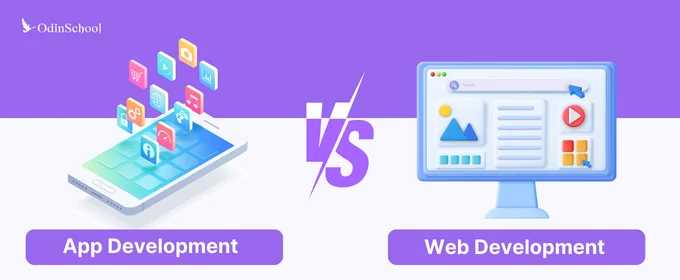Revolutionizing Mental Health Assessment: The Power of Web Development
Summary
Web development has the potential to revolutionize mental health assessment by seamlessly integrating technology and well-being.
This blog shows how emerging trends in web development are focused on harnessing the power of technology to transform the way mental health is assessed and supported. This is explained in the form of a wonderful case study.
It is also reinforced as to why it is an absolute necessity to upskill in web development right now.
Mental health has emerged as a critical component of overall well-being, and its impact extends to various aspects of an individual's life.
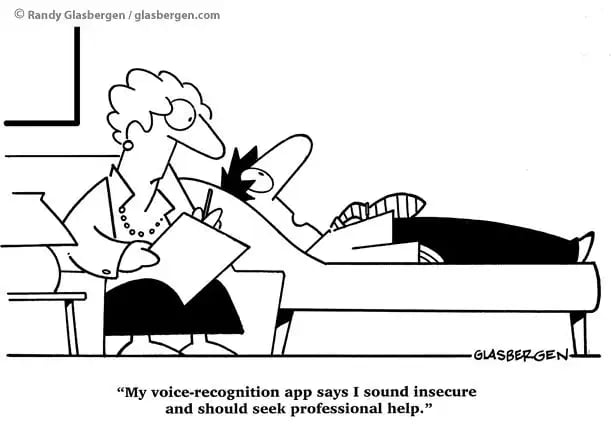
Jokes apart, minimum of 43.8 million adults experience mental illness in any one year, worldwide. Due to the COVID-19 pandemic, the number of people with anxiety and depressive disorders grew. According to the mental health stats in Forbes, depressive symptoms grew to 246 million worldwide, and anxiety disorders grew to 374 million.
According to WHO, India accounted for nearly 15% of the global mental, neurological and substance abuse disorder burden. A meta-analysis of community surveys estimates that the prevalence of depression and anxiety could be up to 33 per 1,000 persons.
Mental health assessment plays a crucial role here. It helps in identifying, diagnosing, and understanding mental health conditions, allowing for effective intervention and support.
Web Development and Its Potential in Enhancing Mental Health Assessment
Web development encompasses the holistic approach to software development, addressing both the front-end and back-end components of an application.
In the context of mental health assessment, web development brings together various technologies, frameworks, and tools to create comprehensive and integrated assessment platforms. By combining the power of front-end interfaces, back-end databases, data analytics, and ML algorithms, web development holds immense potential to transform mental health assessment processes.
Web development empowers mental health professionals to gather accurate data, detect patterns, and gain valuable insights. They are now able to tailor treatment plans to individuals' unique needs.
Benefits of Leveraging Web Development in Mental Health Assessment
Integrating web development into mental health assessment can bridge the gap between technology and well-being. It enables the development of user-friendly interfaces, streamlined data collection and analysis, and personalized assessment approaches.
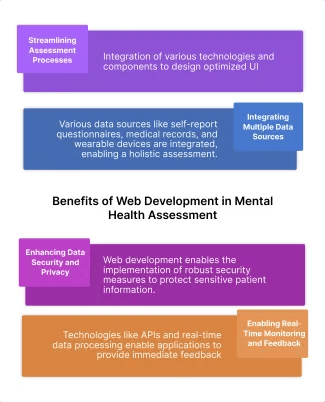
Benefit 1: Streamlining assessment processes
-
Web development allows for the creation of streamlined and efficient assessment processes.
-
Integration of various technologies and components enables the design of user-friendly interfaces and optimized information flow.
Benefit 2: Integrating multiple data sources for a comprehensive evaluation
-
Web development facilitates the integration of multiple data sources into a single platform for comprehensive evaluation.
-
Various data sources such as self-report questionnaires, medical records, and wearable devices can be integrated, enabling a holistic assessment.
Benefit 3: Enhancing data security and privacy
-
Web development enables the implementation of robust security measures to protect sensitive patient information.
-
Encryption techniques, access controls, and secure data storage protocols can be incorporated to ensure data security and privacy throughout the assessment process.
Benefit 4: Enabling real-time monitoring and feedback
-
Web development allows for real-time monitoring and feedback in mental health assessment.
-
Technologies like APIs and real-time data processing enable applications to provide immediate feedback and alerts based on assessment results.
Benefit 5: Improving accessibility and user experience
-
Web development focuses on creating a user-friendly interface and optimizing the user experience.
-
By considering accessibility requirements, such as responsive design and compatibility with different devices, mental health assessments can be made accessible to a wider range of users.
These benefits highlight how leveraging web development in mental health assessment is lead to more efficient, comprehensive, and user-friendly assessment processes.
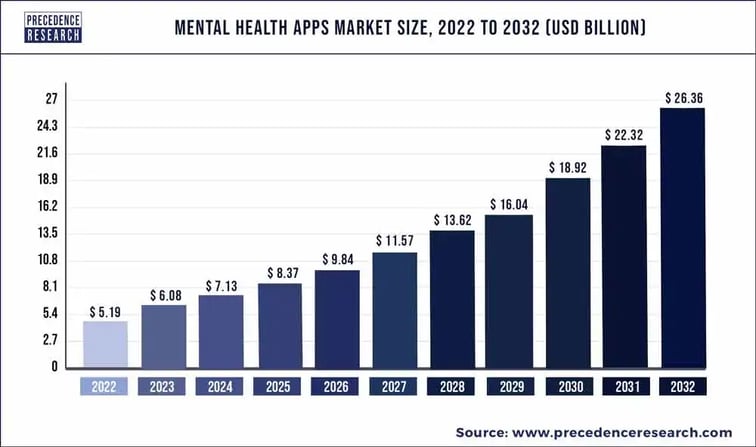
Use of Web Development for Improved Mental Health Assessment
Intuitive User Interface
Here are examples of how web development is being leveraged for improved mental health assessment when it comes to developing the right user interface.
-
Mobile Apps for Mental Health: MoodTools is a mobile app developed using web development focusing on mental health assessment. It offers an intuitive user interface, mood-tracking features, educational resources, and tools for self-assessment. The app provides users a convenient and accessible way to monitor and manage their mental well-being.
-
Teletherapy and Virtual Care Platforms: BetterHelp is an online therapy platform that utilizes web development to create an intuitive user interface for teletherapy services. It integrates video conferencing capabilities, secure messaging, appointment scheduling, and payment processing. The platform enables mental health professionals to provide remote counselling and support to individuals seeking therapy.
-
Data Analysis and Insights: Ginger is a mental health platform that employs web development to incorporate data analytics and machine learning algorithms. These algorithms analyze assessment data, identify patterns, and generate insights for mental health professionals. The platform provides personalized recommendations and treatment plans based on the data collected.
-
Integration with Wearable Devices and Sensors: Spire is a wearable device and app that employs web development to integrate mental health assessment features. The device tracks breathing patterns and stress levels, while the app provides an intuitive user interface for visualizing the data. Mental health professionals can leverage this data to gain insights into an individual's well-being.
Data collection and management
Here are examples of how web development is being leveraged for improved mental health assessment when it comes to the collection of data and security.
-
Implementing secure data storage and encryption methods: Mindbody, a wellness and fitness platform, employs web development to ensure secure data storage and encryption. They utilize encryption algorithms to protect personal and mental health data stored on their servers. This ensures that sensitive information remains confidential and secure.
-
Ensuring compliance with privacy regulations: Cognito Health, a mental health technology company, uses web development to ensure compliance with privacy regulations. They adhere to HIPAA regulations by implementing strict access controls, conducting regular security audits, and maintaining robust data governance practices. This ensures that patient information remains private and meets the required legal standards.
-
Utilizing cloud-based solutions for scalability and data accessibility: Talkspace, an online therapy platform, leverages web development and cloud-based solutions for data collection and management. They store patient data securely in the cloud, allowing therapists to access it remotely. This enables seamless scalability and ensures that authorized stakeholders can access data whenever needed.
Enhancing Assessment Accuracy and Efficiency
Here are some examples of how web development is utilized to enhance assessment accuracy and efficiency in the field of mental health
-
Automation of scoring and result generation: Pearson's Q-interactive is an assessment platform that automates scoring and result generation for psychological assessments. It uses a combination of frontend interfaces and backend algorithms to streamline the scoring process, reducing manual effort and improving the accuracy and efficiency of assessment outcomes.
-
Utilizing artificial intelligence for pattern recognition and risk assessment: Kintsugi Mindful Mental Health is a mental health platform that leverages artificial intelligence for personalized assessments and risk assessment.
The platform uses natural language processing and machine learning algorithms to analyze user-generated content, such as text responses or journal entries, and identify patterns related to mental health symptoms, emotions, and well-being. By detecting patterns and trends, Kintsugi can provide individuals with insights into their mental health and potential risk factors, empowering them to seek appropriate support and interventions.
-
Incorporating real-time monitoring and feedback mechanisms: Counsol is a comprehensive mental health EHR system that utilizes web development to incorporate real-time monitoring and feedback mechanisms. The platform enables mental health professionals to administer assessments and track patient progress over time. The frontend interface allows patients to complete assessments while the backend processes and analyzes the data in real time. This allows clinicians to monitor patients' mental health status, identify trends or changes, and provide timely feedback and interventions to support their well-being.
These examples illustrate how web development enables secure data storage, compliance with privacy regulations, and utilization of cloud-based solutions for enhanced scalability and data accessibility. By utilizing artificial intelligence for pattern recognition and risk assessment, these platforms improve the quality and effectiveness of mental health assessments, ultimately leading to better outcomes for individuals seeking mental health support.
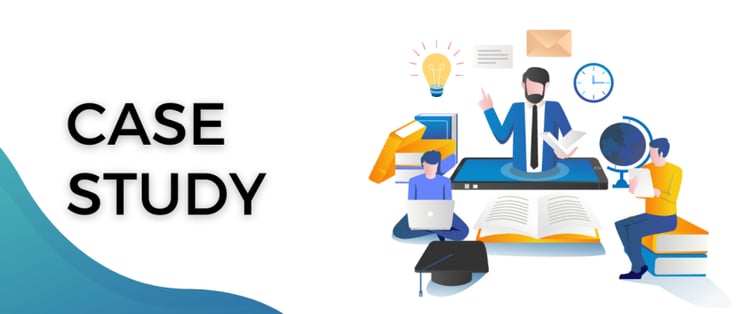
Case Study: MoodTracker
Background
MoodTracker is a digital mental health platform that aims to improve the accuracy and efficiency of mental health assessments. They leverage web development to create an integrated assessment platform that incorporates advanced technologies for a comprehensive evaluation of individuals' mental well-being.
Challenges
-
Inefficient and manual scoring processes: The traditional approach to mental health assessments involved manual scoring and result generation, which was time-consuming and prone to human error.
-
Limited insights from assessments: Traditional assessments often provided limited insights, lacking real-time monitoring and personalized feedback mechanisms.
-
Data management and privacy concerns: With the increasing volume of data, there was a need for secure storage, efficient data management, and compliance with privacy regulations.
Solution
MoodTracker utilized web development to address these challenges and enhance its mental health assessment platform.
-
Automation of scoring and result generation: Web developers implemented backend algorithms that automated the scoring and result generation process. This reduced the manual effort and ensured accurate and consistent assessment outcomes.
-
Utilizing artificial intelligence for pattern recognition and risk assessment: Machine learning algorithms were integrated into the platform to analyze assessment data and identify patterns related to mental health symptoms, risk factors, and trends. This enabled more accurate risk assessment and personalized insights for individuals.
-
Improved assessment accuracy and efficiency: The automation of scoring and result generation reduced errors and enhanced the efficiency of assessments, saving time for both users and mental health professionals.
-
Personalized insights and interventions: By leveraging artificial intelligence, MoodTracker provided personalized insights based on patterns and trends, empowering individuals with tailored recommendations and interventions.
-
Enhanced data management and privacy: Web development ensured secure data storage, efficient data management, and compliance with privacy regulations, addressing data privacy concerns.
-
Incorporating real-time monitoring and feedback mechanisms: The platform included real-time monitoring capabilities to track individuals' mental health status and progress over time. Users could receive immediate feedback based on their assessment results, allowing for timely interventions and support.
Result
-
Improved assessment accuracy and efficiency: The automation of scoring and result generation reduced errors and enhanced the efficiency of assessments, saving time for both users and mental health professionals.
-
Personalized insights and interventions: By leveraging artificial intelligence, MoodTracker provided personalized insights based on patterns and trends, empowering individuals with tailored recommendations and interventions.
-
Enhanced data management and privacy: Web development ensured secure data storage, efficient data management, and compliance with privacy regulations, addressing data privacy concerns.
Web development in mental health assessment is a dynamic field that requires ongoing research, collaboration, and user feedback for continuous improvement. Developers and researchers must stay abreast of the latest scientific findings, collaborate with mental health professionals, and actively seek user feedback to refine assessment tools and platforms. This iterative approach ensures that solutions align with the evolving needs of individuals seeking mental health support.
Present Web Development Challenges
Several challenges may arise when enhancing mental health applications or platforms through web development. These challenges include:
Challenge 1 - Privacy and Data Security
When developing a mental health platform, ensuring compliance with regulations like HIPAA is crucial. For developers to implement robust encryption methods, secure user authentication, and data anonymization techniques to protect the privacy and security of sensitive mental health information is very challenging.
Challenge 2 - Ethical Considerations
Developers must address potential biases in algorithms used for mental health assessment. They need to ensure that the algorithms are trained on diverse and representative datasets, avoiding any discrimination or unfair treatment based on race, gender, or other personal characteristics.
Challenge 3 - Integration and Compatibility
Integrating various assessment tools and questionnaires into a mental health platform can be challenging. Developers need to ensure compatibility between different data formats, establish smooth data flows, and create seamless user experiences that seamlessly transition between different assessment components.
Challenge 4 - User Experience and Usability
Example: Designing an intuitive and user-friendly interface is vital for mental health applications. Developers should focus on simplicity, clarity, and ease of navigation to create an engaging user experience. Incorporating features like progress tracking, reminders, and personalized recommendations can enhance usability and user engagement.
Challenge 5 - Scalability and Maintenance
As the user base grows, ensuring scalability becomes essential. Developers must design the web application for mental health to handle increased traffic and user interactions without sacrificing performance. Regular maintenance and updates are necessary to address bugs, introduce new features, and improve the overall user experience.
Addressing these challenges requires a thoughtful and diligent approach from web developers to create robust, secure, and user-centric mental health applications.
Final Thoughts
The transformative power of web development lies in its ability to leverage technology to enhance accuracy, efficiency, and accessibility in mental health assessments. Therefore, now is the time to upskill in web development. Now is also the time to make a difference to support mental health through technology.
To study the subject in depth, it is always advisable to join a professional course. This will help you with an industry-vetted curriculum under subject-matter-experts guidance.










